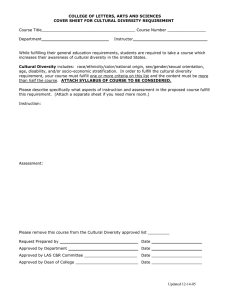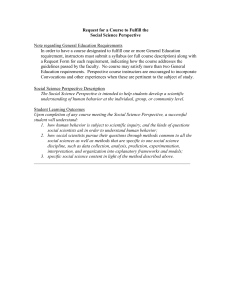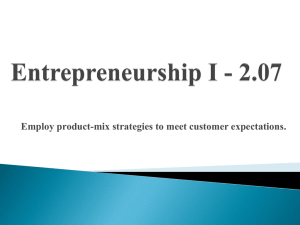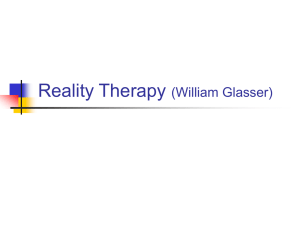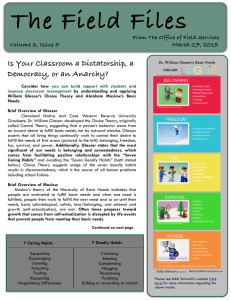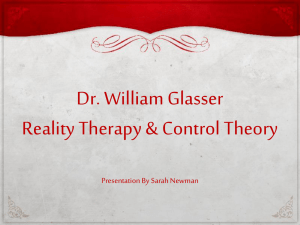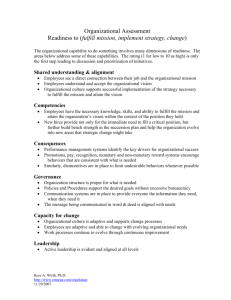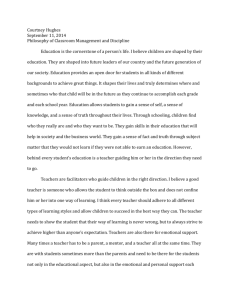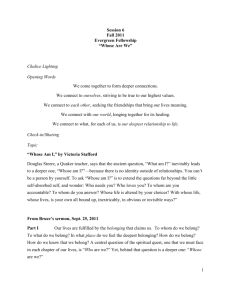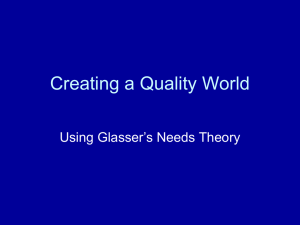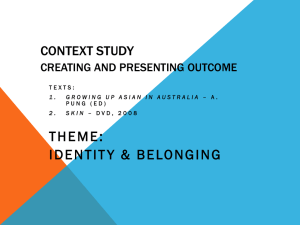Choice Theory
advertisement
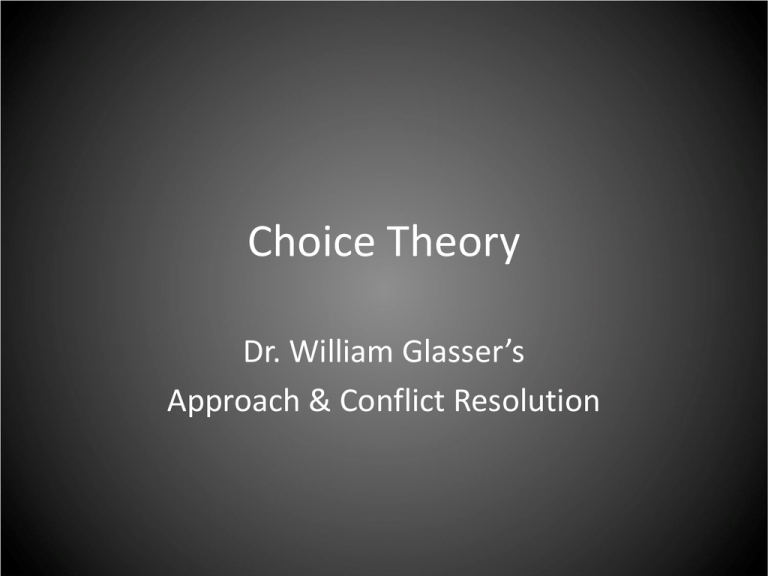
Choice Theory Dr. William Glasser’s Approach & Conflict Resolution Dr. William Glasser (b. May 11, 1925) Choice Theory • Choice Theory suggests that human meaning and behavior are driven by 5 genetic needs, the last 4 of which relate directly to Peer Mediation: Survival, Belonging, Power, Freedom, & Fun. • Survival remains important to conflict resolution, but can be excluded from most school conflicts. Choice Theory: Based on 4 Common Human Needs Choice Theory: Belonging • Some species live largely alone, whilst others have learned that if you form a tribe, you can live more safely. Humans are tribal, and so we all have a deep need to belong to groups. • We fulfill the need to belong by loving, sharing, and cooperating with others, and our status within the group is determined by the extent to which we do this. Choice Theory: Belonging Choice Theory: Power • The desire to influence and exert control over our reality is at the heart of the need for power. The more power a person has, the more likely that their wants will be satisfied. • We fulfill the need for power by achieving, accomplishing, and being recognized and respected, all of which “prove” to us that we can exert control over our universe. Choice Theory: Power Choice Theory: Freedom • Freedom is an ideal, and a fundamental need. It is embodied in many statements of rights, and is related to power in that freedom means being able to do what one wants. • When people are free to act, they can do things that otherwise might be repressed. We fulfill the need for freedom by making choices in our lives. Choice Theory: Freedom Choice Theory: Fun • Humans tend to categorize experience on a continuum between boredom and fun. We move away from things that bore us and toward things that are new and interesting, that provide stimulation. • We fulfill the need for fun by laughing and playing, indications that our stimuli are engaging and our lives are meaningful. Choice Theory: Fun
